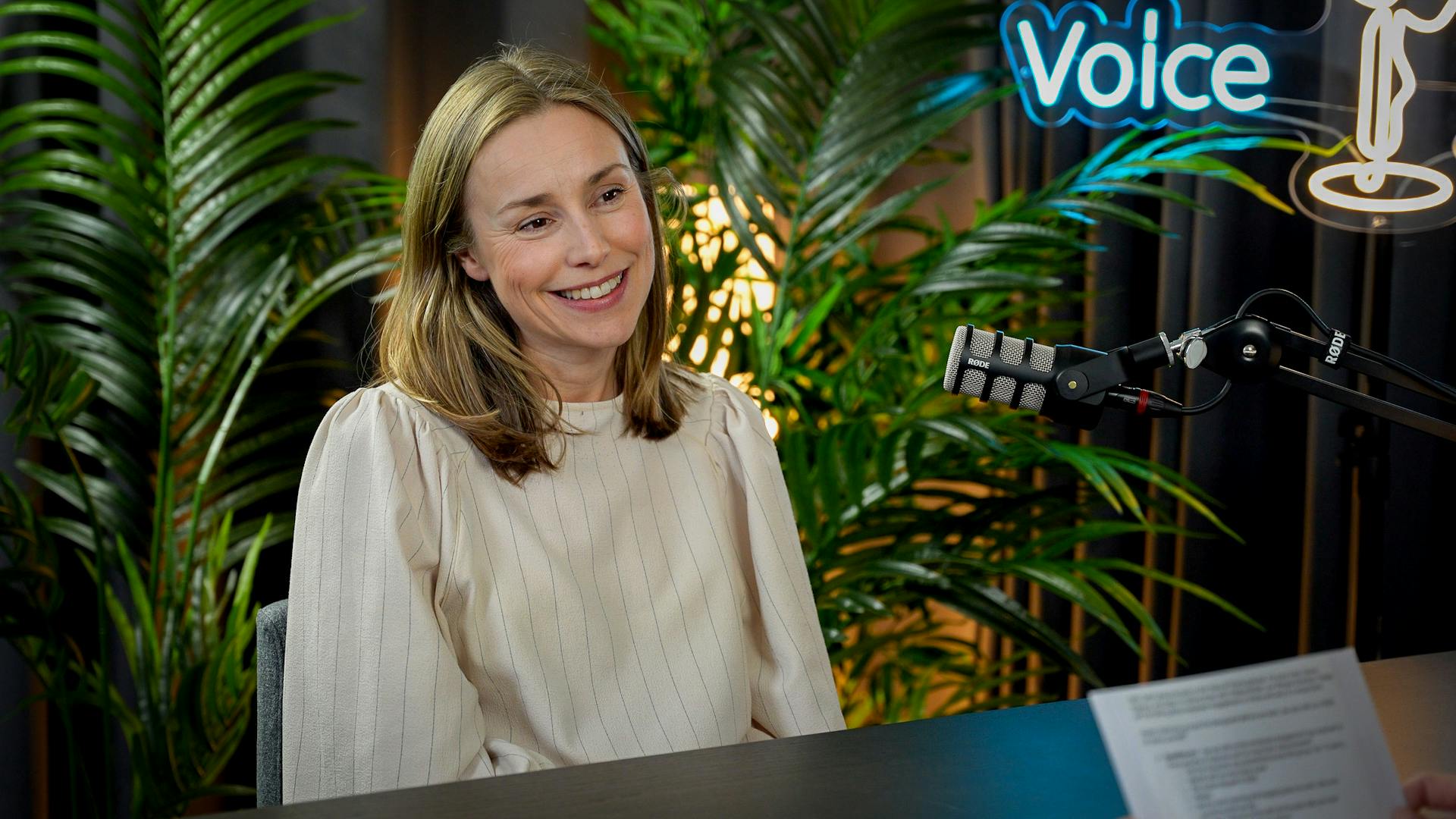Article
Øystein Moan: – We see a new level of willingness to change and adapt
5/4/2020
min read
Business insights
Article
Øystein Moan: – We see a new level of willingness to change and adapt

This interview first appeared on the Norwegian blog 31st March 2020 (link to the article in Norwegian) and is written by Kaja Falck-Ytter.
It is not every day that you are invited into the home of the former CEO of Visma (Merete Hverven took over as CEO of Visma 1st of April 2020). There is something private about coming home to someone. An empty clothing rack is visible, and on the wall, a slightly gloomy painting in blue tones.
The painting fits in with the current situation and atmosphere. The blue tones disappear from my field of view as Øystein Moan appears on the screen.
He looks straight into the camera, with a serious look on his face, and I wonder: Is he as worried as the rest of us?
In his 23 years as CEO of Visma, Øystein Moan has built up one of Europe’s most profitable tech companies. He has worked through crises before; he remembers “Black Monday” in 1987, the dot com bubble and, most recently, the financial crisis in 2008/09. What thoughts does he have about what is happening right now?
I think this will be one of the deepest recessions we have seen both in Norway and the world. We might have to go all the way back to 1929 to find a similar situation. The corona crisis is going to hit the world economy hard.
– From 2022, I believe – and hope – we see a Norway that is back in strong growth
Even though the crisis in Norway has just started, the former CEO is still slightly optimistic – even for the year we are currently in. Some claim it will take a year and a half before we have a vaccine against the virus, but Moan himself believes that the vaccine will come before Christmas.
He is nevertheless concerned about whether the consequences of shutting down society are greater than the virus itself. The big financial impacts? They will last until the summer of 2021, if not longer.
– From 2022 I believe and hope we see a Norway that is back in strong growth. Prior to that, unfortunately, many companies will go bankrupt. Then, after the crisis, we will probably see a strong establishment of new companies and new growth in the Norwegian economy.
Also read: Keeping a human touch with customers in the digital space.
Risk-averse companies are most likely to survive
The virus crisis strikes randomly, especially in some industries. Even very profitable and solid companies in the travel, hotel, and cultural industries have lost their income base overnight.
Nevertheless, Moan believes that it is not just the coincidences that determine the outcome. He thinks we will see that companies that are at high risk and that have a high debt ratio are the ones that are hit hardest.
– The government’s crisis response will not be of enough help to them. Postponements are good, but the payment deadline will eventually have to come one day.
According to Moan, it is the most disciplined companies that have taken a slightly lower risk and accepted a slower growth rate which is best equipped to get through this. In addition, the company’s digitisation rate is crucial.
– If you did not have digital tools and cloud solutions in place when Norway shut down, and are dependent on having employees sitting at the office to run your business, you have probably felt the pain these last weeks. Now is the time to change this. For example, we have been talking about using e-invoices for many years, and nowadays no one thinks it is okay to send or receive paper invoices.
Everyone wants to work in the cloud
Overnight, everyone needed to start working digitally and in the cloud, so that they can continue operating from home as well. Suddenly, having important systems on old servers in the office became very negative. Moan, therefore, believes the transition to cloud services will accelerate dramatically. But do Norwegian companies have the means to make large IT investments now?
No companies want to make large investments right now. But that’s why the cloud model fits so well in these times as well. Cloud solutions involve little or no investment but are a service you subscribe to with typically monthly or annual costs.
The cloud makes it possible to continue to run businesses, and we have seen several examples in recent weeks: Many Norwegians are sitting at home and working from their living rooms, kitchens and home offices.
Restaurants are struggling but can survive by taking advantage of delivery services. Many stores can survive with e-commerce.
– What is interesting to see, is that there is also an increased demand for specific things. We are seeing strong growth in online services and e-commerce – everything you can consume from home. There are even more opportunities within these industries if you manage to think more innovatively on how to deliver goods and services.
– We see a willingness to change and adaptability on a completely different level
When everything is comfortable, the willingness to change is not great. For many companies in Norway, the business has been pleasant for many years: Demand has been high and income stable – and for many growing. At the beginning of March, everything was normal. Then it changed overnight.
When we find ourselves in a critical situation, we see a willingness to change and adaptability on a completely different level. Necessity breeds innovation. This is an opportunity we must all take advantage of.
Moan believes that the companies that are unable to digitise or manage to work from home in the future will have gone bankrupt by the time the crisis is over. But for everyone else – what can they do?
– If you believe your business can survive, allow slightly lower activity for a period of time. Take the time to change some internal systems – transition as much as you can to cloud solutions. Maybe employees can learn new things? Right now, the motivation is extremely strong to adapt and update the expertise, and almost everything is available online.

About the episode
Business,Cloud technology,Coronavirus,Digitalisation,Insights: Cloud
Voice of Visma
We're sitting down with leaders and colleagues from around Visma to share their stories, industry knowledge, and valuable career lessons. With the Voice of Visma podcast, we’re bringing our people and culture closer to you. Welcome!































































































































































































































